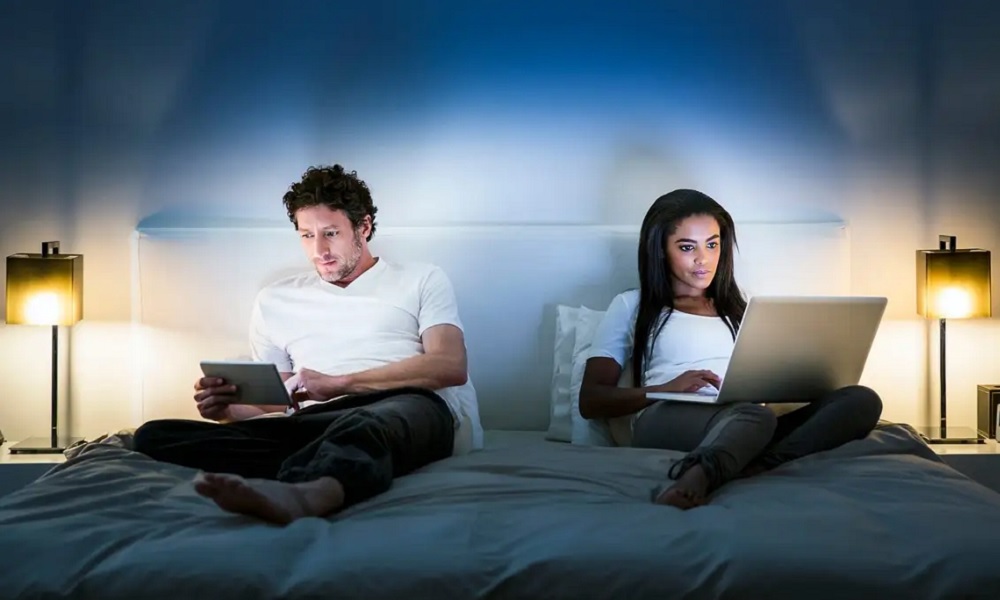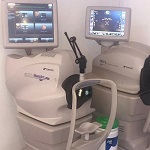
Where does blue light come from, and what role does it play?
To comprehend blue light, we must first comprehend light itself. There are both visible and invisible portions of the electromagnetic spectrum contained within light. Humans are able to perceive a broad spectrum of colours, known as "visible light," which includes the colours of the rainbow.
Every colour has a unique wavelength and energy level. Light with a shorter wavelength has a higher energy content and can cause more damage than light with a longer wavelength. Because of its shorter wavelength compared to other visible light frequencies, blue light is often considered dangerous to the human eye. The eyes may be harmed by exposure to short-wave blue light, which has been measured at 415–455 nanometers in several studies. LEDs used in portable electronics like phones, televisions, and tablets emit most of their light between 400 and 490 nanometers.
Are there any negative effects of blue light on human health?
The eye is a very intricate organ with many parts and layers that all work together and are impacted by light in different ways. The cornea and lens aren't the only optical components of the eye that are vulnerable to light, though. The light also affects the retina, which sends information about what the eye sees to the brain.
Blue light exposure may impair vision and hasten the ageing of the retina. Preliminary studies suggest that prolonged exposure to blue light may result in:
Eye strain from screens
Multiple types of eye strain have been linked to blue light. To begin with, extended use of digital devices like smartphones, tablets, and computers can lead to digital eye strain, which includes symptoms including dry eyes, eye fatigue, and headaches. The reason behind this is that blue light has a shorter wavelength than other colours of light, making it more susceptible to scattering and, therefore, increasing glare and decreasing contrast.
Retinal damage
Long-term exposure to blue light has been linked to oxidative stress, which in turn has been linked to the death of photoreceptor cells, according to studies. Retinal cell damage can lead to age-related macular degeneration and other vision impairments. This is a major contributor to age-related macular degeneration, the leading cause of blindness in the elderly.
Sleep Schedule
The sleep-regulating hormone melatonin can be negatively impacted by exposure to blue light, which is released by electronic gadgets like smartphones, tablets, and computers. It can be more challenging to get to sleep and stay asleep if you're exposed to blue light in the evening. Moreover, the illumination from these devices can make it more difficult to remain asleep once you've fallen asleep. To avoid these side effects, you need to limit your screen time late at night, use a blue-light filter, or wear special glasses.
How can I prevent damage to my eyes from blue light?
There are some easy things you can do to help shield your eyes from blue light and its harmful effects. To achieve this, you can:
Limit your use of electronic screens. This is a simple method to lessen your exposure to blue light. Make an effort to take frequent breaks during the day and put away any electronics at least an hour before bedtime. Turning on your device's blue light blocker Many electronic devices, including smartphones, laptops, and tablets, have a built-in, reduced blue light capability that can be activated. It can lessen the intensity of the screen's blue light, which is harmful to the eyes. Lenses that block blue light: In order to protect your eyes from blue light, anti-glare lenses are constructed in a unique way. These glasses alleviate eyestrain from staring at screens for extended periods of time due to their special blue light filter.
What Is the Purpose of Blue-Light Filter Glasses?
The purpose of having blue light-filtering glasses is to lessen the amount of blue light entering the wearer's eyes; these lenses feature a unique filter. People can protect their eyes better from the negative effects of blue light, like digital eyestrain, by wearing glasses with a blue light filter.
Conclusion
In conclusion, blue light has been linked to age-related macular degeneration, sleep disorders, and other sleep-related problems. To safeguard your eyes, it's best to avoid or at least reduce your exposure to blue light as much as possible, particularly at night.
Remember to take frequent breaks, cut down on screen time, utilise blue light filters and other tools, and tweak your screen's settings. Your eyes will appreciate it!
Dec 02, 2022 Written by Hayder Where does blue light come from, and what role does it play?


